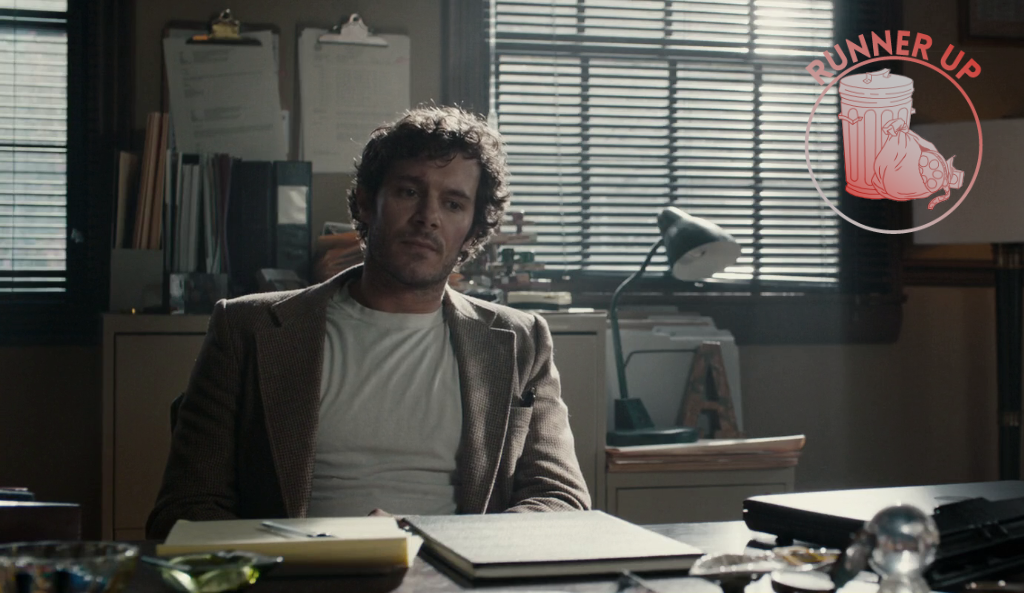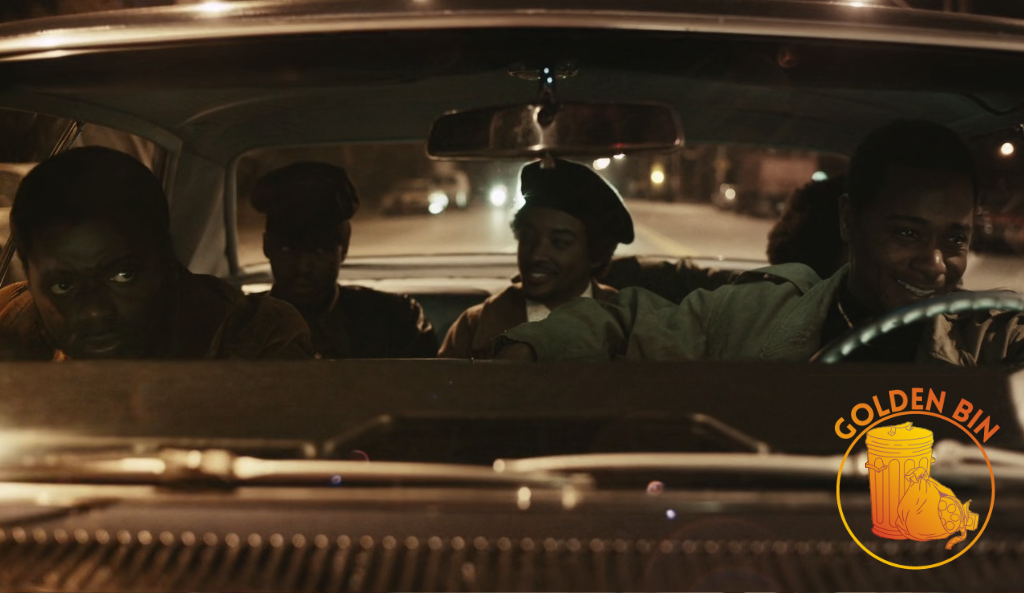
The Golden Bin Awards: Best Original Screenplay
April 21, 2021New twists on old stories
In this series based on the Oscars Deathrace series of articles I wrote for The Phoenix News over the last few years, I spotlight my personal picks for this year’s Oscars, as well as some notable snubs.

Winner: Judas and the Black Messiah
Drawing inspiration from espionage thrillers, epic period pieces, and even setting up parallels to the biblical story from which it draws its name, Judas and the Black Messiah is a powerful and effective account of the betrayal and murder of a 20th-century icon.
In Judas, Daniel Kaluuya stars as deputy chairman of the Illinois Black Panther Party Fred Hampton. Hampton is portrayed as an impossibly charismatic orator. Under Hampton, disparate gangs of oppressed minorities within Chicago are unified under the “Rainbow Coalition”. With the cause of revolution against fascism and tyranny, Hampton energizes the Black Panthers, Young Patriots, Crowns, and more, causing the FBI to take notice.
To take Hampton down, the Bureau recruits Bill O’Neal (Lakeith Stanfield), a car thief facing several years in prison. But as O’Neil infiltrates and grows closer to Hampton, he is torn between loyalty to his employers, who can ruin his life without a second thought, and his friend, a revolutionary whose cause he emphatically supports.
Judas makes efficient use of speeches – expertly delivered by Kaluuya – to quickly characterize Hampton as a larger-than-life figure. In parallel, O’Neal’s storyline uses visual storytelling, flashbacks, and even a dream sequence to show the informant’s inner conflict as he struggles with the job he has no choice but to carry out. Near the start, O’Neal has few reservations about betraying Hampton to his handler (played by a sinisterly nice Jess Plemons), but as the film progresses, he becomes ever surer of his role as the villain of the story.
Aside from its main characters, Judas uses a brilliantly written supporting cast to show the ways in which even the smallest actions can snowball into major events. An offhand comment about an informant being caught in Maryland sets the film’s entire second act in motion. An act of vigilante justice early into the film leads to events that eventually spell the end of the Illinois Black Panther Party’s headquarters.
But the film is selective with which “minor” events it shows outside of the main characters at all, implying that the actions of the supporting cast are just as important as those of its leads. In a counterexample, Hampton is said to have stolen $70 of ice cream, leading to his arrest. This event is never shown, forcing the audience to consider the fact that it’s irrelevant why Hampton gets arrested if the reason can simply be handwaved away by everyone in the movie.
Though it depicts an event now 50 years in the past, Judas is still a very relevant movie. The Fred Hampton of the film is transcendently inspirational, but also human. The story is dramatized and stylized to the caliber of a blockbuster, yet it never seems untrue. The writers faced the difficult balancing act of mythologizing a man while maintaining historicity and nailed it.

Runner-Up: The Kid Detective
When Abe Applebaum (Adam Brody) was 13, he solved the case of the missing fundraiser money. Local knucklehead Rory Beans had stolen money intended for an animal shelter because he held a grudge against a dog for biting him last summer. Applebaum solved that case in a minute, and his quick insights, brazen confidence, and general cleverness quickly earned him a reputation as the Kid Detective, a local sleuth who could solve just about any (small) case within a matter of minutes.
The Kid Detective uses the format of a noir movie to tell the story of a deadbeat young man whose best years are long behind him. Laughed at by everyone around him, Abe retreats into extremely low-stakes detective work and whiskey, while relying on his parents for things like laundry and groceries. As an adult, he looks back fondly on the days when people considered him a child prodigy, opting to ignore that at his age, that’s no longer impressive. When a high school student is murdered, giving Abe the chance to solve a “real” case, the Kid Detective is uniquely suited to investigate but thoroughly inexperienced at the same time. But then, to quote Abe, “experience is overrated”.
The Kid Detective uses tropes from a classic detective story, but ages everyone but its main character down to teenagers. Abe’s prime suspects are the Red Shoe Gang, an infamous group of delinquents who… honestly probably just sell drugs and cut classes. The people he interrogates are scene kids, jocks, and nerds because he can’t see why anyone out of school would be suspicious.
In nearly every scene, Abe comes across as an out-of-touch old man among children. Mostly because he is. Most of the humour in the film is the same as in movies where people clearly too old to be in high school are playing teenagers.
The humour in The Kid Detective comes from the fact that Abe is less of a fish out of water, more a salmon that never made it back to the ocean. He’s been a kid so long even the teenagers are making fun of him for it. It’s an angle that makes for great punchlines but is also a tragic and poignant statement on unfulfilled childhood potential.
Abe was a gifted kid that got stuck when he didn’t become a gifted adult. Instead, he mulls over old cases that never got solved, as the town slowly grows to resent him. For his entire life, he never considers the fact that snap judgments about people he doesn’t really know could be wrong, and that maybe he never was that great of a detective, kid, or otherwise.
And if he finally solves his case… he’ll still be little more than a former child celebrity.
Honourable Mentions
The Half of It, Never Rarely Sometimes Always, The Assistant

